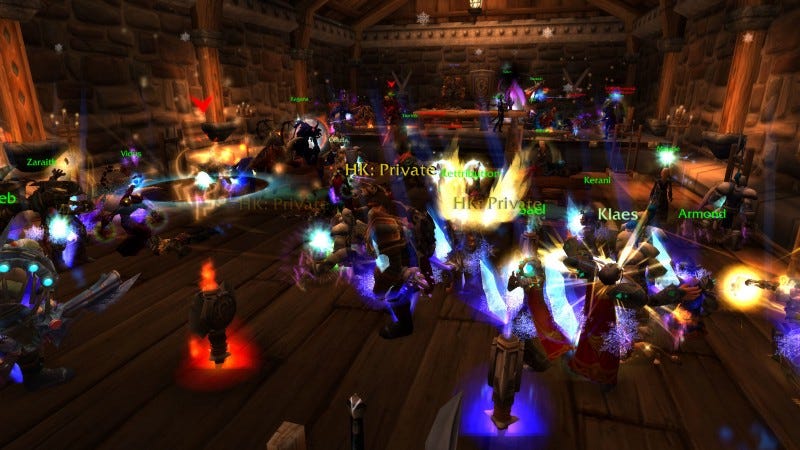Looking for Group: Clubhouse
I’m excited about Clubhouse, a new audio-only social network. It is the social network most informed by games.
I’m excited about Clubhouse, a new audio-only social network. Unfortunately, a multitude of people who’d like to give it a try haven’t been able to access it yet (it isn’t on Android yet, and the invites on iOS are in short supply). This has resulted in a great deal of curiosity about what the excitement is about. I’m going to try and explain it through the lens of gaming, in hope that you’ll give it a try.
Clubhouse works for the same reason that multiplayer online games work. I think of it as applying the “looking for group” (LFG) aspect of MMO play to social networks. To explain what I mean, let’s start by thinking about how most social networks are structured today.
The “original” electronic social networks were forums and bulletin board systems. These were structured into messaging systems where you followed discussions based on a topic. Reddit is the most evolved version of this; although it has social aspects, it remains oriented around subjects more than anything else.
Social networks flipped this paradigm; instead of following topics, you follow people and engage with the subjects of interest to those people. In a typical social network, you are largely a spectator. You can comment, but the agenda is set by those you follow. Although there are distinctions between public versus private access to content in the various networks, this is the model of Facebook, of streaming services (Twitch, Facebook Live, etc.) and Twitter.
In most MMORPGs (massively multiplayer online roleplaying games) your interactions are not primarily organized around subjects or people; they are organized by fun activities. Some players end up taking on leadership roles, advertising groups to raid dungeons or grind levels. They’ll advertise that they are looking for help with these activities, and players who are available to join one of these activities are LFG (“looking for group.”) The players who organize most of these activities often end up becoming guild leaders.
Clubhouse essentially follows the same structure; it is the social network most informed by games. You follow people you are interested in, but that’s primarily for the purpose of curating the type of activities you’d like to participate in. The primary user interface of Clubhouse focuses on showing you all the activities going on at that moment; if you haven’t entered a room yet, you’re effectively LFG (and your friends can “ping” you to encourage you to join the room they’re in).
Once you’re in a room, you’ll be part of the activity. Sometimes that means listening, but often it means being part of a dynamic conversation; and at this point in Clubhouse’s life, the fun comes from the quality of the conversation — I find I’m learning something new every time I participate. People who become popular enough and consistent enough about managing the rooms can eventually form clubs (which are basically guilds).
There are other reasons why Clubhouse ought to be successful. The audio-only format means you don’t need to worry what you look like, and using it from your phone means you’ll take it wherever you need to go — whether you’re listening passively in the car, cooking dinner, or working on a blog post (as I am right now). However, it is the dynamic activity-oriented format that borrows from so much of what works in games and drives addictive engagement.
Intrigued? I’m building a community of game industry professionals on Clubhouse. Follow me @jradoff on Clubhouse and you’ll learn about the rooms I start up. I’m doing two types of rooms: random “coffee & networking” rooms that I start on most days, where it is open-mic — along with a Thursday programming schedule that runs on Thursdays 6PM PT / 9PM ET.
Here are the upcoming programmed topics:
February 18: 6PM PT / 9PM ET — Funding Your Game Idea
February 25: 6PM PT / 9PM ET — Challenges of Game Discovery
March 4: 6PM PT / 9PM ET — Nurturing Diversity




